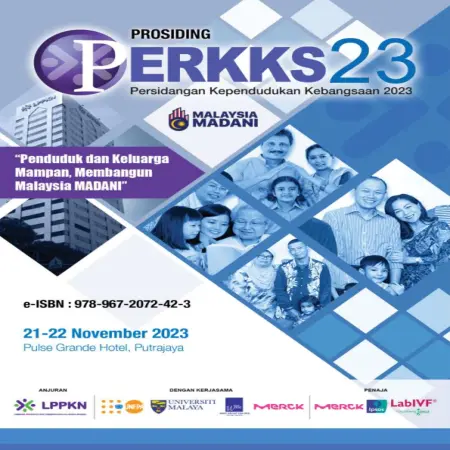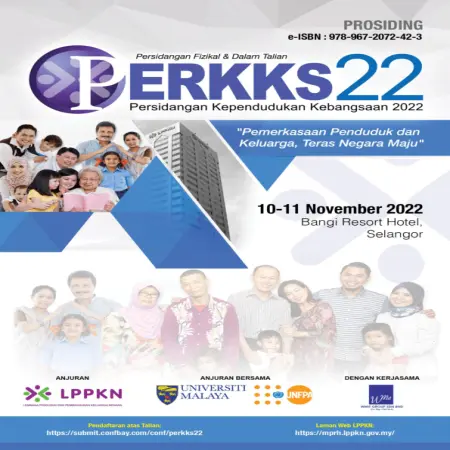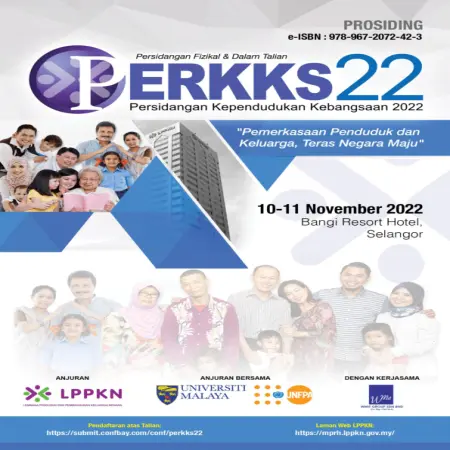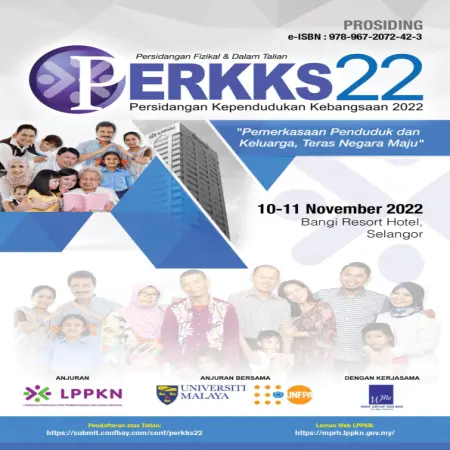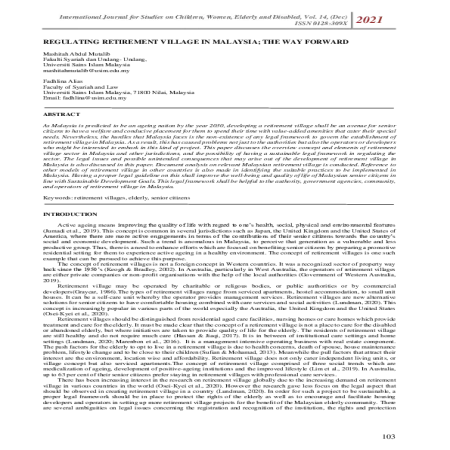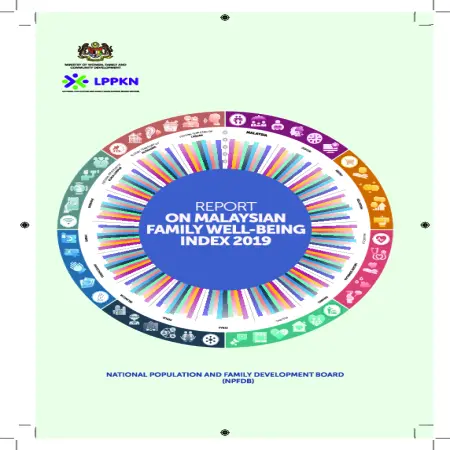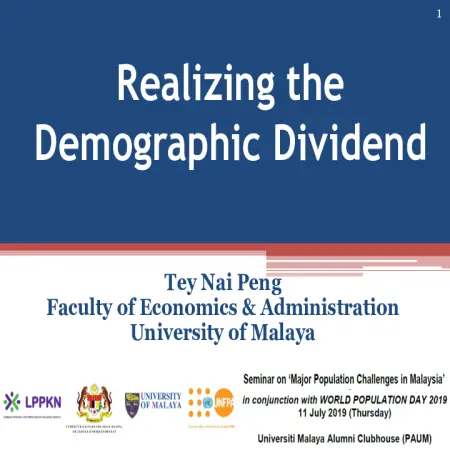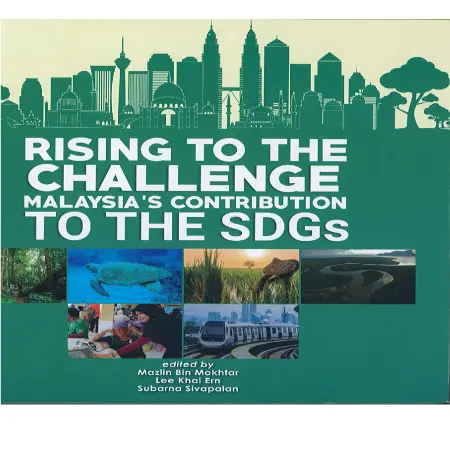Browse by Type
|
|
Review on big data analytics in population research: methods and application
Item Type: Book Section
Editor:
Year: 00/12/2023
Abstract: This exploration delves into the transformative influence of big data analytics on population research, encompassing methodologies, tools, applications, challenges, and their chronological distribution. It scrutinizes the digital era's impact on the field and the emergence of novel data sources and techniques. Key research papers contributing to this discourse are also highlighted.
|
|
|
|
|
|
Reka bentuk aplikasi saringan mental sihat remaja
Item Type: Book Section
Editor:
Year: 10/11/2022
Abstract: Mental health is one of the most important aspects that must be met by every individual to achieve optimal health in addition to physical and social well-being. An increase in mental health-related problems can be seen every year and puts pressure on the daily life of patients among teenagers who are more susceptible to mental disorder factors due to the influence of the environment and current lifestyle, coupled with the situation of movement control orders (MCO) throughout Malaysia. However, many individuals do not undergo screening due to feeling of shame and are unware of their problems.
|
|
|
|
|
|
Redefining quality interpersonal communication in marriage from divorcees’ perspectives
Item Type: Book Section
Editor:
Year: 00/00/2022
Abstract: Quality interpersonal communication is essential in the development and maintenance of any relationship, including marriage. As society adapts to new avenues of communication, married couples often underestimate the relevance of interpersonal communication in their relationship due to their lack of understanding of quality interpersonal communication. Therefore, this study investigated the conceptualisation of quality interpersonal communication through the lens of Relational Dialectic Theory in marriage from the perspectives of divorcees.
|
|
|
|
|
|
Relationship between family functioning, resilience and psychological well-being among B40 youths in the Klang Valley district
Item Type: Book Section
Editor:
Year: 00/00/2022
Abstract: Global economic uncertainties in the COVID-19 era have had an adverse impact on many households across nations, including Malaysian households. In particular, the B40 households have seen an upsurge in the cost of living, which puts a strain on their purchasing power. The Malaysian government has implemented various initiatives to alleviate the financial burdens of the B40 groups, such as Bantuan Prihatin Malaysia. Yet, the psychological wellbeing of the B40 group’s families are not under care.
|
|
|
|
|
|
Regulating retirement village in Malaysia; the way forward
Item Type: Article
Editor:
Year: 00/12/2021
Abstract: As Malaysia is predicted to be an ageing nation by the year 2030, developing a retirement village shall be an avenue for senior citizens to have a welfare and conducive placement for them to spend their time with value-added amenities that cater their special needs. This paper discusses the overview concept and elements of retirement village sector in Malaysia and other jurisdictions, and the possibility of having a sustainable legal framework in regulating the sector. The legal issues and possible unintended consequences that may arise out of the development of retirement village in Malaysia is also discussed in this paper.
|
|
|
|
|
|
Report on Malaysia Family Well-Being Index 2019
Item Type: Research Report
Editor:
Year: 00/00/2020
Abstract: The Family Well -Being Index (FWI) is a multi -dimensional benchmark specially developed to measure the level of family well -being in Malaysia. This index is generated through a mother’s or father’s assessment of their family’s well -being. The 2019 Malaysian Family Well -Being Index score recorded in this study is 7.72 out of a maximum scale of 10. Of the eight domains that have been identified, the Family Relationship Domain recorded the highest domain score of 8.35. This is followed The study also found that the 2019 FWI score is increasing according to household income group. The 2019 FWI score is higher in families living in rural areas. In terms of family type, FWI 2019 scores were higher in family groups by Family Domain, Role of Religion and Spiritual Practice (8.25), Family Domain and Community Involvement (8.00), Family Safety Domain (7.86), Family Economics Domain (7.67), Family Health Domain (7.44), Housing and Environment Domain (7.35) and Family and Communication Technology Domain (6.82). Although the score of FWI 2019 is still at a moderate level but it has shown an increase of 0.39 points compared to 7.33 for FWI 2016.
|
|
|
|
|
|
Realising the demographic dividend
Item Type: Conference or Workshop Item
Editor:
Year: 00/00/2019
Abstract: Malaysia has done well in harnessing the demographic dividend through pragmatic planning and management, and investment in health and education. It is ranked among the very high Human Development index country (from 63 to 57). Achieved almost all the goals of ICPD (1994-2014) and MDGs (2000-2015).
|
|
|
|
|
|
Relationship between family functioning, parenting behaviour, self-efficacy, and gender on risky behaviour amongst adolescents in Kuala Lumpur, Malaysia
Item Type: Thesis
Editor:
Year: 00/00/2018
Abstract: Adolescence is the developmental period marked by a rise in risk-taking behaviours. The high rate of adolescents’ involvement in risky behaviours in the past decades has created a vast amount of attention on the impact to their future. In Malaysia, the impact of risky behaviour has been alarming as evidenced by the media reports on baby dumping, unwanted pregnancies, drug addiction and juvenile delinquency. The increasing trend of adolescents’ involvement in risky behaviour may be associated with social- and self-factors. The current study was conducted to investigate the relationship between family functioning, parenting behaviours, self-efficacy, and gender on risky behaviours amongst adolescents in Kuala Lumpur, Malaysia. This quantitative study utilised a descriptive and correlational research design. Data were collected using self-administered questionnaires. A total of 411 adolescents aged 15 to 18 years were recruited as respondents. Six instruments were used namely the Family Perception Scale, the Parental Monitoring Scale, the General SelfEfficacy Scale, the Adolescent Alcohol and Drug Involvement Scale, the Adolescent Sexual Activity Index, and the Self-Reported Delinquent-Problem Behaviour Frequency Scale to measure the respective variables. Descriptive, bivariate, and multivariate statistics were used in analyses to address the specific objectives of the study. The study found that 12.6% of adolescents reported engagement in substance use, 47.2% in risky sexual behaviour, and 52.1% in delinquency. The independent t-test analysis showed that the proportion of male adolescents who engaged in substance use was higher compared to female. There were no significant differences between male and female in risky sexual behaviour and delinquency. Findings of this study showed that self-efficacy only moderated the relationship between parental monitoring and substance use, whereby the effect is strongest among adolescents with low self-efficacy, and weakest among adolescents with high self-efficacy. This suggested that there is low risky for adolescents to involve in substance use if the adolescent has higher level of self-efficacy. Meanwhile, gender only moderated the relationship between parental monitoring and risky sexual behaviour, whereby the effect is stronger among male adolescents compared to female adolescents. This suggested that male adolescents tend to involve more with risky sexual behaviour compared to female adolescents. The present study conclude that family functioning (family cohesion, communication), parenting behaviour (parental monitoring and parental involvement), self-efficacy and gender influence risky behaviours (substance use, risky sexual behaviour and delinquency) amongst adolescents in Kuala Lumpur. The findings has implication for parents as well as individuals and professional working with adolescents. Parental monitoring was significantly correlated with substance use thus parents were suggested to provide appropriate monitoring to increase awareness that their involvement is crucial in reducing adolescents’ substance use. They also need to be equipped with appropriate skills to establish high quality relationship with their adolescent children. The finding also call for intervention to provide adolescents with necessary skills to help them avoid being involved in risky behaviour.
|
|
|
|
|
|
Reproductive and social health education
Item Type: Book Section
Editor:
Year: 01/01/2017
Abstract: On 6th December 2009, the Cabinet approved the PEKERTI Policy & Action Plan proposed by Ministry of Women, Family and Community Development (MWFCD), which aims to guide young people from getting involved in social problems.
|
|
|
|






